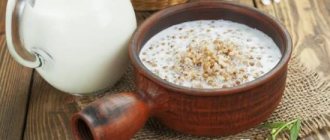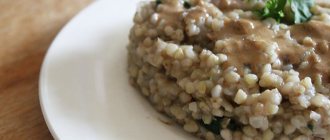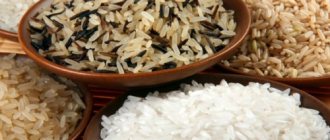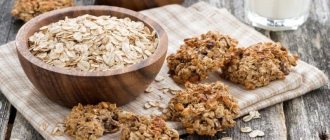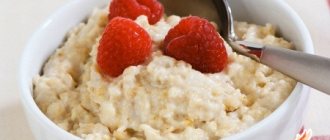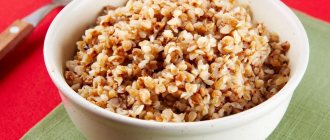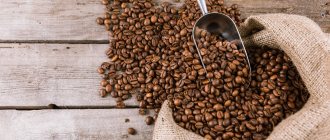Among dietary foods, buckwheat takes pride of place. Representing not a grain, as many mistakenly believe, but a cereal, it was imported from Greece.
What makes buckwheat healthy is its composition. Cereals contain a high concentration of polyunsaturated fatty acids. They help reduce bad cholesterol and have a positive effect on the metabolic process. Thanks to the latter quality, a person who eats buckwheat loses weight faster, despite the fact that it is high in calories.
This cereal contains many flavonoids, which prevent the growth of cancer tumors and prevent the risk of thrombosis. Buckwheat normalizes blood sugar and is recommended for inclusion in the diet of diabetics. The folic acid present in the product makes it valuable for women during pregnancy.
How many calories are in buckwheat with water?
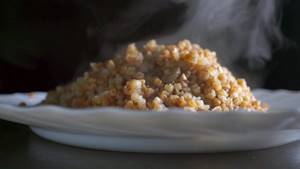
Cereals cooked in water turn out to be quite liquid and low in calories. The calorie content of the dish is approximately 90 kcal. It contains vitamins and minerals. Adding meat and other ingredients to such porridge will significantly increase the calorie content.
If you add salt and oil to buckwheat with water, its calorie content will increase to almost 500 calories per 100 grams! Heat treatment does not affect the number of calories in porridge.
Eating buckwheat porridge with water during a diet provides the body with oxalic acid, calcium, iodine, iron, amino acids, phosphorus, and vitamins from groups B and PP. It contains folic acid, which strengthens the heart muscle and blood vessels. The product has an excellent taste, which makes boiled porridge an excellent choice for both dietary and health-improving menus.
Buckwheat benefits and harms. Buckwheat calorie content, how to cook and cook correctly
Composition and properties of buckwheat
As already mentioned, buckwheat is a dietary product. 100 grams of dry buckwheat contains 345 calories. Despite the considerable calorie content of the product, its balanced content of nutrients and fiber allows it to be consumed even with the strictest diets. In addition, it contains so-called slow carbohydrates (it is thanks to them that the cereal is so filling and gives a boost of energy for the whole day).
Buckwheat contains a high amount of polyunsaturated acids. They have a positive effect on cholesterol levels, reducing it, and regulate metabolism, which is especially important for those who want to lose excess weight. Buckwheat also contains a large amount of amino acids (substances that are the basis of protein molecules). That is why buckwheat is recommended to be included in the diet during diets and during active sports.
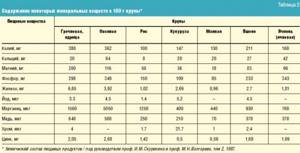
Lysine is another important component that performs many functions. This substance reduces the risk of infectious diseases. It must be present in the daily diet of every person. Fiber, which has already been mentioned, promotes normal digestion and prevents intestinal diseases.
Buckwheat porridge is cooked for breakfast, lunch and dinner. It is prepared with vegetables, meat, nuts, milk and kefir. The combination of the product with milk is especially popular. A lot has already been said about the benefits of buckwheat. And it’s no secret what importance milk has for the human body. It contains calcium necessary for bones and teeth, it promotes normal metabolism, and includes many vitamins.
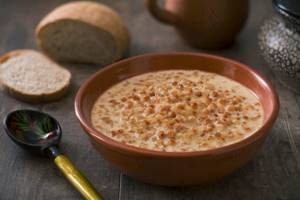
Calorie content of buckwheat with milk
To prepare milk buckwheat dietary porridge, you should use only low-fat whole milk. It is important for those losing weight to constantly count calories.
When including buckwheat porridge with milk in the diet menu, it should be taken into account that the energy value of both products is summed up together. For 100 grams of cereal take 50 ml of milk, which gives about 200 calories.
Porridge has no restrictions. You can eat the dish at any time of the day. It improves metabolism and provides the body with protein (protein). The presence of fiber helps cleanse and get rid of slagging.
Igor June 24, 2017
With milk
| Name | Quantity | fats | carbohydrates | squirrels | Total kcal |
| Buckwheat (half a glass) | 110 gr | 1.3 | 34 | 6.3 | 173 |
| Milk (1 glass) | 240 ml | 10.36 | 7.68 | 124 | |
| Water (1 glass) | 240 ml | ||||
| Sugar (1 tablespoon) | 30 gr | 29.9 | 119 | ||
| Total calories per 2 servings/270 grams | 550 | 105 | 255 | 56 | 416 |
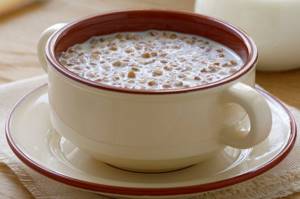
Traditionally, porridge is cooked in milk; this also applies to buckwheat; 100 grams of buckwheat with milk contains only 76 kcal. To improve the taste, buckwheat porridge with milk can be seasoned with butter, then the taste will become even more delicate. The calorie content of boiled buckwheat porridge with milk, butter and sugar increases by about 50 kcal/100 grams.
Buckwheat porridge in the diet of those who watch their figure
Those who want to get rid of deposits in the hips and abdomen are strongly recommended to try a diet based on buckwheat porridge, which is cooked in a special way. To be more precise, it is not boiled, but steamed for eight to ten hours, and therefore they leave it overnight. The cereal is poured with boiling water, wrapped in a towel and left to brew in a warm place. In this case, the calorie content of buckwheat porridge on water does not change compared to the usual version, but it does not have salt, which means it does not interfere with the removal of excess fluid from the body. And, in addition, unlike cooked buckwheat, steamed buckwheat retains absolutely all the beneficial substances: in general, during the cooking process, cereals lose some of their vitamins and microelements, as if “weakening” in terms of healing. That is why all porridges are advised to either steam or cook for a short period of time.
For ordinary dietary nutrition, of course, it is permissible to prepare any buckwheat porridge: the calorie content allows you to add butter and sugar to it, and even mix in vegetables, fish or meat, sprinkle with cheese, choose any base for cooking - milk, water or meat broth. Probably, there is no more ideal product among cereals for those who want to lose weight or maintain existing results regarding their figure. This can be seen even from the caloric content of buckwheat porridge. A variation with tender white chicken meat, carrots, sweet red peppers, onions, tomatoes, herbs, garlic, seasonings and a spoon of olive oil in a slow cooker will be only 103 kcal per hundred grams of product. Moreover, this dish can be considered a complete hearty lunch for an adult not only due to cereals and vegetables, but also due to the presence of meat. In addition, it has an almost perfect balance of proteins, fats and carbohydrates, since absolutely everything is present and in the right combination. Even olive oil acts not just as an ingredient that eliminates the dryness of the dish, but also for the purpose of better absorption of vitamin A from carrots, which always requires fat: butter or sour cream.
4.9 out of 5 (7 Votes)
Buckwheat porridge with milk is a favorite product of many children and adults. This is a healthy dish that cannot harm your health. Let's consider how many calories are in buckwheat with milk, what is its energy value and what are the benefits.
Recipe Buckwheat with milk without sugar and salt. Calorie, chemical composition and nutritional value.
Nutritional value and chemical composition of “Buckwheat with milk without sugar and salt.”
The table shows the nutritional content (calories, proteins, fats, carbohydrates, vitamins and minerals) per 100 grams of edible portion.
| Nutrient | Quantity | Norm** | % of the norm in 100 g | % of the norm in 100 kcal | 100% normal |
| Calorie content | 69.6 kcal | 1684 kcal | 4.1% | 5.9% | 2420 g |
| Squirrels | 3.3 g | 76 g | 4.3% | 6.2% | 2303 g |
| Fats | 2 g | 56 g | 3.6% | 5.2% | 2800 g |
| Carbohydrates | 9.4 g | 219 g | 4.3% | 6.2% | 2330 g |
| Organic acids | 0.1 g | ~ | |||
| Alimentary fiber | 1.3 g | 20 g | 6.5% | 9.3% | 1538 g |
| Water | 84.5 g | 2273 g | 3.7% | 5.3% | 2690 g |
| Ash | 0.655 g | ~ | |||
| Vitamins | |||||
| Vitamin A, RE | 6.9 mcg | 900 mcg | 0.8% | 1.1% | 13043 g |
| Retinol | 0.007 mg | ~ | |||
| beta carotene | 0.001 mg | 5 mg | 500000 g | ||
| Vitamin B1, thiamine | 0.047 mg | 1.5 mg | 3.1% | 4.5% | 3191 g |
| Vitamin B2, riboflavin | 0.104 mg | 1.8 mg | 5.8% | 8.3% | 1731 |
| Vitamin B4, choline | 10.53 mg | 500 mg | 2.1% | 3% | 4748 g |
| Vitamin B5, pantothenic | 0.133 mg | 5 mg | 2.7% | 3.9% | 3759 g |
| Vitamin B6, pyridoxine | 0.062 mg | 2 mg | 3.1% | 4.5% | 3226 g |
| Vitamin B9, folates | 5.613 mcg | 400 mcg | 1.4% | 2% | 7126 g |
| Vitamin B12, cobalamin | 0.133 mcg | 3 mcg | 4.4% | 6.3% | 2256 g |
| Vitamin C, ascorbic acid | 0.4 mg | 90 mg | 0.4% | 0.6% | 22500 g |
| Vitamin D, calciferol | 0.02 mcg | 10 mcg | 0.2% | 0.3% | 50000 g |
| Vitamin E, alpha tocopherol, TE | 0.09 mg | 15 mg | 0.6% | 0.9% | 16667 g |
| Vitamin H, biotin | 2.133 mcg | 50 mcg | 4.3% | 6.2% | 2344 g |
| Vitamin K, phylloquinone | 0.1 mcg | 120 mcg | 0.1% | 0.1% | 120000 g |
| Vitamin RR, NE | 1.1678 mg | 20 mg | 5.8% | 8.3% | 1713 g |
| Niacin | 0.47 mg | ~ | |||
| Macronutrients | |||||
| Potassium, K | 139.38 mg | 2500 mg | 5.6% | 8% | 1794 g |
| Calcium, Ca | 83.42 mg | 1000 mg | 8.3% | 11.9% | 1199 g |
| Silicon, Si | 9.145 mg | 30 mg | 30.5% | 43.8% | 328 g |
| Magnesium, Mg | 31.73 mg | 400 mg | 7.9% | 11.4% | 1261 g |
| Sodium, Na | 33.91 mg | 1300 mg | 2.6% | 3.7% | 3834 g |
| Sera, S | 29.54 mg | 1000 mg | 3% | 4.3% | 3385 g |
| Phosphorus, P | 93 mg | 800 mg | 11.6% | 16.7% | 860 g |
| Chlorine, Cl | 70.77 mg | 2300 mg | 3.1% | 4.5% | 3250 g |
| Microelements | |||||
| Aluminium, Al | 33.3 mcg | ~ | |||
| Iron, Fe | 0.808 mg | 18 mg | 4.5% | 6.5% | 2228 g |
| Yod, I | 6.37 mcg | 150 mcg | 4.2% | 6% | 2355 g |
| Cobalt, Co | 0.95 mcg | 10 mcg | 9.5% | 13.6% | 1053 g |
| Manganese, Mn | 0.1799 mg | 2 mg | 9% | 12.9% | 1112 g |
| Copper, Cu | 80.42 mcg | 1000 mcg | 8% | 11.5% | 1243 g |
| Molybdenum, Mo | 7.217 mcg | 70 mcg | 10.3% | 14.8% | 970 g |
| Nickel, Ni | 1.14 mcg | ~ | |||
| Tin, Sn | 10 mcg | ~ | |||
| Selenium, Se | 1.604 mcg | 55 mcg | 2.9% | 4.2% | 3429 g |
| Strontium, Sr | 11.33 mcg | ~ | |||
| Titanium, Ti | 3.73 mcg | ~ | |||
| Fluorine, F | 42.81 mcg | 4000 mcg | 1.1% | 1.6% | 9344 g |
| Chromium, Cr | 1.78 mcg | 50 mcg | 3.6% | 5.2% | 2809 g |
| Zinc, Zn | 0.4981 mg | 12 mg | 4.2% | 6% | 2409 g |
| Digestible carbohydrates | |||||
| Starch and dextrins | 6.13 g | ~ | |||
| Mono- and disaccharides (sugars) | 3.4 g | max 100 g | |||
| Sterols (sterols) | |||||
| Cholesterol | 4.67 mg | max 300 mg | |||
| Saturated fatty acids | |||||
| Saturated fatty acids | 1.1 g | max 18.7 g | |||
| Monounsaturated fatty acids | 0.513 g | min 16.8 g | 3.1% | 4.5% | |
| Polyunsaturated fatty acids | 0.043 g | from 11.2 to 20.6 g | 0.4% | 0.6% |
The energy value of Buckwheat with milk without sugar and salt is 69.6 kcal.
Primary Source: Created in the application by the user. Read more.
** This table shows the average levels of vitamins and minerals for an adult. If you want to know the norms taking into account your gender, age and other factors, then use the “My Healthy Diet” application.
Calorie content of buckwheat porridge with milk per 100 grams
The calorie content of boiled buckwheat porridge with milk per 100 grams is 118.2 kcal. Per 100 gram serving:
- 4.21 g protein;
- 2.29 g fat;
- 21.61 g carbohydrates.
Buckwheat with milk is saturated with pectin, lecithin, vitamins B, PP, H, E, minerals magnesium, potassium, manganese, copper, zinc, calcium, selenium, iron, phosphorus, sodium.
Recipe for making buckwheat porridge with milk:
- pour a glass of buckwheat into a saucepan;
- pour a glass of boiling water into the porridge;
- cook the porridge over low heat for 5 minutes;
- then add 1 glass of milk;
- cook buckwheat covered for 12 minutes;
- add sugar and salt to the porridge to taste;
- let the boiled buckwheat brew under the lid for 10 - 20 minutes.
Calorie content of buckwheat
One hundred grams of dry, uncooked buckwheat is not the same as 100 grams of boiled buckwheat. How do you cook buckwheat? With what proportion of water? Personally, I – 3 to 1. So, one hundred grams of dry buckwheat, when completely “boiled”, is filled with water, and the weight becomes approximately 300-350 grams.
It is noteworthy that buckwheat porridge (the same 300-350 g), cooked to the maximum (when it practically does not need to be chewed), has a calorie content of 90 kcal. And this is on the water. What is 90 kcal (let’s take the maximum)? This, frankly speaking, is not enough.
If you slightly undercook the porridge (so that it is not completely soft, but not hard either: this can be achieved with a ratio of 2 to 1 or simply turn off the heat earlier and drain the remaining water), then the calorie content will be slightly higher - somewhere around 120 kcal . That's better.
You can add oil. You can’t spoil porridge with oil, but the amount of calorie content will increase depending on the piece of butter thrown into the food: you can throw in 20 grams, or you can add 80. The calorie content of porridge with butter also depends on the fat content of the butter itself. On average, 100 g of butter with 82% fat content is 720 kcal. Therefore, adding 20 grams of such oil to the porridge will add 144 kcal to the porridge. The numbers are approximate.
As for milk, the situation is as follows: store-bought milk practically does not increase calorie content. Can be compared with water. Porridge with milk from the village is a different story: 100 grams of milk is 65 kilocalories. Again, pour 200 grams - the calorie content will be twice as high from milk.
Buckwheat porridge is a wonderful source of vegetable proteins and carbohydrates, and is also an excellent dish that can be served with different sauces - depending on your imagination. But you can’t count on the fact that by eating it once a day (even with natural milk and butter), you will cover at least a third of your daily calorie intake. You simply won’t eat that much porridge.
If the material was useful to you, then do not hesitate to subscribe to blog updates and share information with friends on social networks. I also look forward to your comments. Everyone should have buckwheat in their diet.
Best regards, Vladimir Manerov
Subscribe and be the first to know about new articles on the site, right in your email.
Buckwheat is one of the best dietary foods. Many people classify buckwheat as a grain, but this is a mistake. It is known that buckwheat was brought from Greece.
The benefits of buckwheat are obvious, because it contains a large amount of polyunsaturated fatty acids, which reduce cholesterol levels and also affect metabolism, due to which you can achieve faster weight loss.
This occurs despite the fact that this product is high in calories.
Since buckwheat contains a large amount of flavonoids, this cereal can stop the growth of cancer and there will be no risk of thrombosis.
Buckwheat is also good for diabetics, as it regulates the amount of sugar in the blood. And folic acid, which is contained in this cereal, is very useful for pregnant women.
With vegetables
| Name | Quantity | fats | carbohydrates | squirrels | Total kcal |
| Buckwheat (1 cup) | 220 gr | 5.72 | 150 | 27.7 | 760 |
| Water (2 glasses) | 480 ml | ||||
| Carrots (1 piece) | 100 gr | 0.1 | 6.9 | 1.3 | 35 |
| Bow (1 piece) | 100 gr | 10.4 | 1.40 | 47.2 | |
| Tomato (1 piece) | 100 gr | 0.2 | 4.2 | 0.6 | 21 |
| Sweet pepper (1 piece) | 100 gr | 5.3 | 1.3 | 26.4 | |
| Sunflower oil (3 tablespoons) | 100 ml | 99.86 | 898.7 | ||
| Total calories in 4 servings of 260 grams | 1100 gr | 952 | 707 | 129 | 1789 |
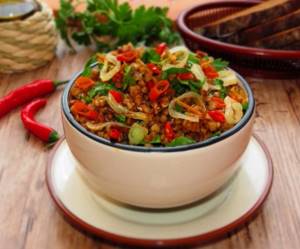
Juicy buckwheat with bright, healthy and low-calorie vegetables is a wonderful alternative to regular porridge, calorie content is only 162 kcal per 100 grams.
If you need to reduce calories, try using less oil.
With meat
| Name | Quantity | fats | carbohydrates | squirrels | Total kcal |
| Buckwheat (2.5 cups) | 500 gr | 13 | 340 | 63 | 1729 |
| Fillet of beef | 500 gr | 62 | 94.5 | 936 | |
| Bow (1 piece) | 100 gr | 10.4 | 1.40 | 47.2 | |
| Carrots (1 piece) | 100 gr | 0.1 | 6.9 | 1.3 | 35 |
| Tomato. pasta (3 tbsp.) | 100 gr | 1.5 | 16.7 | 5.6 | 104 |
| Water (6 glasses) | 1.4 l | ||||
| Vegetable oil (2 tablespoons) | 60 ml | 59.91 | 539 | ||
| Total calories per 10 servings/250 grams | 2500 gr | 1228 | 1496 | 663 | 3390 |
Buckwheat with meat turns out especially tasty if you bake it in pots; the energy value is only 135 kcal per 100 grams.
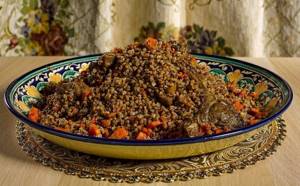
With stew
| Name | Quantity | fats | carbohydrates | squirrels | Total kcal |
| Buckwheat (2.5 cups) | 500 gr | 13 | 340 | 63 | 1729 |
| Stew (1 can) | 400 gr | 69.6 | 56.4 | 852 | |
| Water (5 glasses) | 1.2 l | ||||
| Onion (2 pcs) | 200 gr | 20.8 | 2.8 | 96 | |
| Carrots (1 piece) | 100 gr | 0.1 | 6.9 | 1.3 | 35 |
| Volume. pasta (3 tablespoons) | 100 gr | 1.5 | 16.7 | 5.6 | 104 |
| Butter (3 tablespoons) | 100 gr | 82.5 | 0.8 | 0.5 | 744 |
| Total calories in 9 servings/250 grams | 2350 gr | 1500 | 1540 | 519 | 3560 |
100 grams of buckwheat with stew contains 151 kcal.
Stewed dishes are universal, easy to prepare and valued for their high taste.
